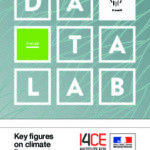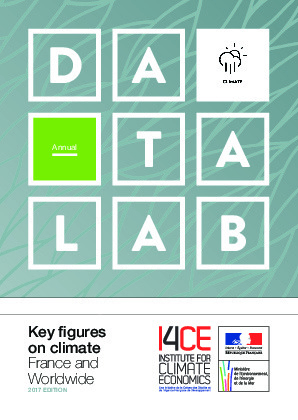Key figures on Climate, France and Worldwide – 2017 edition
On the day of the commencement of the Paris Agreement, and on the brink of the 22nd Conference of the Parties on Climate Change (COP 22) which will be held in Marrakech from 7 to 18 November 2016, I4CE-Institute for Climate Economics and the French Ministry of Environment, Energy and the Sea are pleased to present the 2017 edition of Key Figures on climate.
Some key figures from the 2017 edition:
- 2015 was globally the warmest year since 1850, with an average temperature increase of 0.74°C above the 1961-1990 average;
- Global greenhouse gas emissions amounted to 54 Gt CO2e in 2013, an increase of more than 80% compared to 1970;
- In 2014, China was the largest emitter and was responsible for almost a third of global CO2 emissions; the United States was the second largest (15%);
- In 2016, 13% of greenhouse gas emissions are covered by an explicit carbon price mechanism.
This small-format publication summarizes the basics to better understand climate change challenges. Figures and graphs illustrate its causes and impacts, as well as mitigation measures. In particular, detailed statistics are provided on global greenhouse gas emissions and on observed trends in Europe and in France.
This version has been updated and expanded compared to previous years. The new edition includes greater emphasis on climate policies, in particular on the Paris agreement which was adopted in December 2015 at COP 21. Moreover, the analysis of climate finance (current climate investments and climate finance needs) has been expanded.
Read the press release of the publication.


